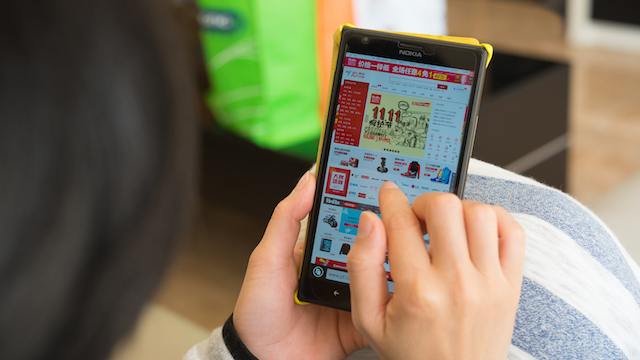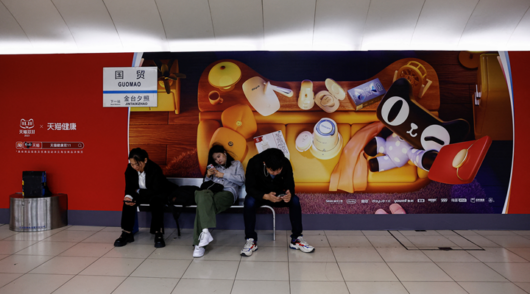Singles Day may well have been invented by China’s largest eCommerce player, Alibaba Group.
But this year it “turned into a battlefield of local Chinese eCommerce players,” according to analysis by AdMaster.
While Alibaba and JD.com continued to sweep online retail purchases, international players likeAmazon.com and Wal-Mart’s Chinese eCommerce platform Yihaodian, however, played a minimal role in the event.
“Throughout the Singles’ Day event, both Alibaba and JD.com worked hard to win Chinese online shoppers. According to AdMaster, 50 per cent of the respondents tuned in to Alibaba’s four hour long televised gala on Hunan TV leading up to the start of the online shopping binge, during which online shoppers could interact with the show through their smartphone for coupons that can be used on Singles’ Day. In a similar practice, JD.com, together with one of China’s most viewed reality talent TV shows, Voice of China, also broadcasted its Double 11 Party on CCTV (China’s national TV station) half an hour ahead of its big rival, and around 17 per cent of the respondents watched the show.
Taobao (70 per cent) and Tmall (68 per cent) maintained their leading position as the most-visited eCommerce platforms in this year’s Single’s Day,followed by JD.com (33 per cent). But the average amount of money spent by Chinese e-shoppers on JD.com, which used to focus on 3C products and electrical appliances, was 2,175 yuan (US$341), 32 per cent higher than the 1643 yuan/per capita (US$258) spent on Tmall.
“Alibaba, because of its history with the event, maintained its leadership and momentum, but JD.com and other key eCommerce platforms are also making a great deal of efforts to leverage the festival” said Maggie Wang, VP commercial strategy, with AdMaster.
“The competition and dynamics between Alibaba and JD.com and other eCommerce players are important for a healthier development of China’s eCommerce market in the long run,” she said.
The rapid development of Internet financing gave birth to innovative payment methods this year. According to AdMaster, nearly two fifths of Chinese e-shoppers (38 per cent) chose online credit payment services for their favorite products on Singles’ Day this year, and their average spending was US$156 higher than those who didn’t use them. Among those who used credit payment, more than half of them (52 per cent) preferred to pay by installments.
Forty five percent of the e-shoppers used pre-order for Singles’ Day this year, 16 percentage points higher than 2014, when Tmall first launched the pre-order, a purchase method that allows consumers pay a deposit to secure products in advance. Among these 45 per cent of e-shoppers, the deals made through pre-order accounted for around one fourth of their total spending on average (24 per cent) on Singles’ Day. As an innovative payment method, the pre-order frees consumers from staying up late to fight for the limited bargain and gives sellers time to prepare and deliver products.
“The development of Internet financing and all these innovative payment methods makes it possible for a smooth, simple and convenient online shopping experience, and make eCommerce a really powerful and solid sales channel,” said Wang.
For the first time ever, mobile devices contributed more sales than PCs. According to Alibaba, mobile purchases in this year’s Singles’ Day reached 62.6 billion yuan (US$9.8billion), accounting for as much as 69 per cent of total transactions, versus 43 per cent in 2014. It means for the first time ever the sales contributed by mobile devices surpassed those from PCs.
AdMaster’s survey shows that within the 24-hour promotion, 81 per cent of the respondents chose smartphones as their most used device for their online shopping, a five-percentage-point growth compared with 2014, while the preference for PCs slumped from 69 per cent in 2014 to 42 per cent this year. Furthermore, for those who used smartphones to shop, 65 per cent completed their whole online shopping journey from product selection to payment on their smartphone.
“Over the past six years, China’s Singles’ Day has evolved into a competition of technologies and innovations whereas it used to be a competition of pricing and logistics in the previous years. Brands and e-retailers have been very innovative to leverage on the mileage of the festival,” said Wang.
“It is important for brands to bear in mind that Singles’ Day is not just a day of sales, but a day of full customer interaction and experience with the consumers. It is critical for brands to maximise the opportunity to build closer bonding with the brands through cross-platforms and the whole consumer journey.”.
AdMaster says the average spending in Singles’ Day reached 1577 yuan (US$247) this year, an increase of 17 per cent compared to 2014 (1348 yuan, or US$211). Sales for Alibaba hit a new high of 9.12 billion yuan (US$ 1.43 billion) on its Tmall eCommerce site alone, a 60 per cent growth compared with 2014.







